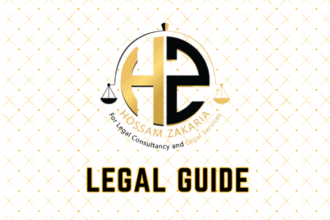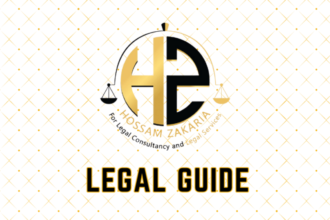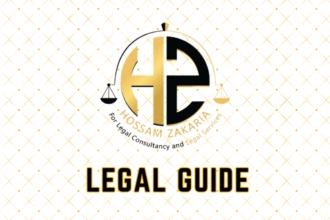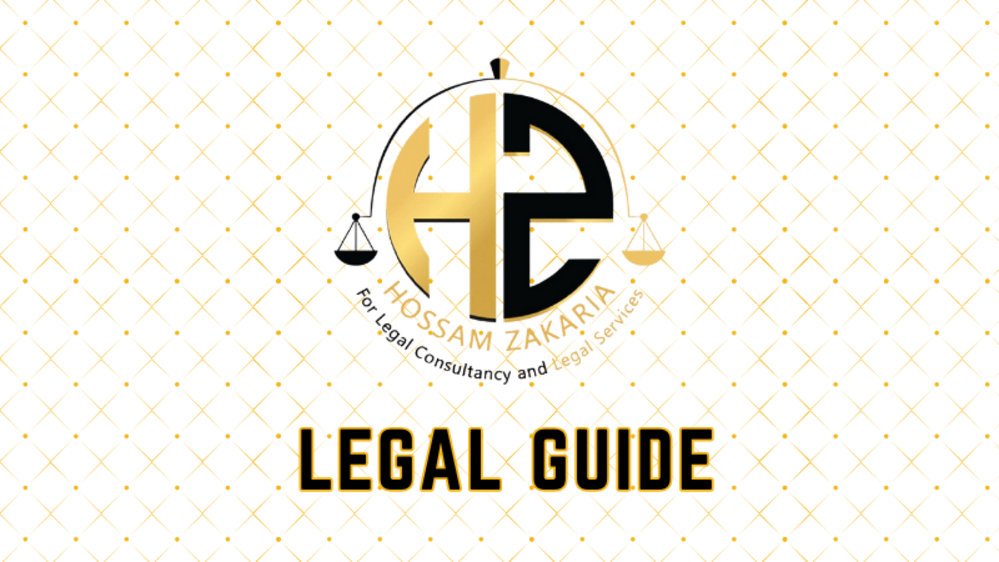Introduction: Navigating the Evolving AML Landscape in GCC Banking
The Gulf region’s dynamic financial sector continues to attract global attention—and heightened regulatory scrutiny. For UAE business leaders with banking interests or cross-border operations in Saudi Arabia, staying ahead on anti-money laundering (AML) compliance has never been more critical. In a climate marked by rapid legal reform, evolving international standards, and landmark enforcement actions, constructing a robust AML framework is an imperative, not an option.
This article explores recent developments in AML regulations affecting Saudi banking from a UAE legal perspective, especially in light of recent 2025 updates. It offers practical guidance, professional legal analysis, and real-world strategies to safeguard UAE organizations—and their stakeholders—against compliance risks and financial crime exposure. Whether you are a banking executive, legal counsel, HR manager, or compliance head, this long-form advisory will equip you with actionable insights that uphold both regulatory obligations and strategic advantage within the GCC’s banking sector.
Table of Contents
- Understanding the Legal Context: AML in Saudi Banking
- Key AML Legal Updates Affecting UAE Business Leaders
- Building Robust AML Compliance Frameworks: Core Elements
- Aligning UAE and Saudi AML Laws: Strategic Comparisons
- Case Studies: Real-World Scenarios for UAE Stakeholders
- Risks of Non-Compliance and Legal Consequences
- Practical Strategies for Proactive AML Compliance
- Conclusion: Future Trends and Best Practices
Understanding the Legal Context: AML in Saudi Banking
The Global Focus on Anti-Money Laundering
Money laundering and terrorist financing are top priorities for financial regulators worldwide. The Financial Action Task Force (FATF) and its Middle East regional body (MENAFATF) have consistently ranked GCC jurisdictions among the world’s fastest-evolving AML environments. Saudi Arabia and the UAE, as key regional players, have intensified legal reform to align their banking sectors with global standards, advance financial integrity, and protect economic interests.
Regulatory Foundations in Saudi Arabia
Saudi Arabia’s principal AML legislation is anchored in the Anti-Money Laundering Law (Royal Decree No. M/20, 1439H/2017), supplemented by the Implementing Regulations (2019) and periodic Saudi Central Bank (SAMA) circulars and guidelines. SAMA, as the national banking regulator, issues binding AML/CTF (counter-terrorism financing) policy directives for all licensed financial institutions. Recent years have witnessed a series of amendments, risk assessment mandates, and new due diligence expectations designed to bring the local framework into full alignment with FATF’s 40 Recommendations.
Why UAE Business Leaders Should Care
Many UAE-based banks, corporations, and investment structures operate within or transact with the Saudi financial system. The regulatory risk is thus twofold: UAE entities are obligated both to comply with local AML laws—such as Federal Decree-Law No. (20) of 2018 on Anti-Money Laundering and Combating Financing of Terrorism and Illegal Organizations, as amended—and to ensure compliance with the Saudi regime. Cross-border transactions, correspondent banking, and even digital platforms are subject to rigorous scrutiny from both SAMA and the UAE Central Bank.
Key AML Legal Updates Affecting UAE Business Leaders
Overview of Recent Saudi AML Law Developments
Saudi Arabia has introduced substantial regulatory updates, many coming into force in late 2023 and 2024, with direct impact on 2025 compliance obligations:
- Expanded KYC (Know Your Customer) and CDD (Customer Due Diligence): New guidelines require enhanced verification for politically exposed persons (PEPs), beneficial owners, and ultimate controllers, echoing UAE Decree-Law No. (20) of 2018 and Cabinet Decision No. (74) of 2020 Executive Regulations.
- Mandatory UBO (Ultimate Beneficial Owner) Disclosure: Institutions must now collect and verify detailed UBO data, with strict timelines and penalties for inaccurate or delayed reporting.
- Dynamic Risk Assessment Obligations: SAMA circulars enforce real-time monitoring for suspicious transactions—requiring automated systems, escalation protocols, and timely reporting to the Saudi Financial Intelligence Unit (SAFIU).
- Enhanced Record-Keeping: Record retention periods have increased to 10 years, matching the UAE’s post-2021 updates under Cabinet Decision No. (10) of 2019 (as amended).
- Sanctions for Non-Compliance: SAMA has sharply raised penalty thresholds, with maximum fines exceeding SAR 10 million, executive disqualifications, and potential criminal prosecution—a risk mirrored in the UAE, with Federal Decree-Law No. (20) of 2018 setting fine ceilings at AED 50 million and criminal penalties including imprisonment.
Comparative Compliance Timeline Table
| Requirement | Previous (Pre-2023) | Current (2024-2025) |
|---|---|---|
| KYC Frequency | Onboarding and periodic | Onboarding, annual, and trigger-based reviews |
| UBO Verification | Declared by customer | Mandatory, with ongoing validation |
| Record Retention | 5–7 years | 10 years |
| Sanction Screening | Manual, annual | Automated, real-time, ongoing |
| Maximum Fines | SAR 2 million | SAR 10 million+ |
Table: Regulatory timeline for Saudi Arabian AML updates versus previous regime.
Building Robust AML Compliance Frameworks: Core Elements
Legal Requirements for Effective AML Programs
Both the Saudi and UAE AML regimes impose strict prerequisites on banking sector participants and multinational groups, including:
- Risk-Based Approach (RBA): All institutions must classify customers, products, and geographic exposures by inherent risk, linked to resource allocation and enhanced due diligence where warranted.
- Written AML/CTF Policies: Firms must maintain current, board-approved policy documents, addressing KYC, transaction monitoring, suspicious activity escalation, and reporting to regulatory authorities.
- Ongoing Employee Training: Compliance with annual training mandates—tailored for staff seniority and function—is no longer optional, and SAMA, UAE Central Bank, and the Ministry of Human Resources and Emiratisation routinely audit training records in cross-border cases.
- Automated Monitoring and Reporting: Technological investment is expected. Manual review is noncompliant under both regimes for banks above a defined threshold.
- Robust Internal Controls: Segregation of duties, whistleblower protections, internal and external audit reviews, and documented compliance checklists are all considered baseline best practices.
Process Flow Diagram Suggestion
Visual: AML compliance process flowchart, illustrating KYC onboarding, continuous monitoring, red flag detection, and STR (Suspicious Transaction Report) submission. Ensure clarity in how data flow and decision-making intersect.
Compliance Checklist Table
| AML Program Element | Saudi Law Reference | UAE Law Reference | Consultancy Best Practice |
|---|---|---|---|
| KYC/Customer Due Diligence | Anti-Money Laundering Law (2017), Art. 8 | Federal Decree-Law No. (20) of 2018, Art. 9-10 | Layered verification, including digital ID and enhanced screening for high-risk clients |
| Ongoing Monitoring | SAMA Guidelines 2022, 2024 | Cabinet Decision No. (74) of 2020, Art. 6-9 | Real-time alerts, machine learning analytics |
| STR Submission Process | Anti-Money Laundering Law (2017), Art. 11-12 | Cabinet Decision No. (10) of 2019, Art. 16-17 | Dedicated compliance teams, digital reporting platforms |
| Training | SAMA Circular 0205/EM/2021 | MOHRE Guidelines 2022 | Bespoke training modules for risk roles and HR oversight |
| Independent Audit | Implementing Regulations, Art. 15 | Cabinet Decision No. (10) of 2019, Art. 33 | Annual audits, external reviews every 3 years |
Aligning UAE and Saudi AML Laws: Strategic Comparisons
Points of Alignment: Where Saudi and UAE Converge
There has been a clear trend toward harmonization of AML standards across the GCC. For UAE business leaders, this offers an opportunity to streamline internal policies and minimize friction in regional operations. Key points of convergence include:
- Risk-Based Approach: Mandated in both Saudi and UAE law, with detailed expectations for risk classification and documentation.
- Enhanced Due Diligence for PEPs and Non-Resident Clients: Both frameworks require stepped-up procedures.
- Comprehensive UBO Disclosure: UAE Cabinet Decision No. (58) of 2020 and Saudi Implementing Regulations both require declarations backed by documentary evidence, with enforcement actions targeting shell structures.
- Mandatory STR/SAR Filing: Companies must file suspicious transaction/activity reports with local Financial Intelligence Units.
Points of Divergence: Where Caution is Warranted
- Sanctions Implementation: SAMA recently expanded its autonomous sanctions list, which may not always align with UAE Central Bank directives—potentially producing conflicting obligations in cross-border transactions.
- Reporting Thresholds: Some categories of low-value transactions trigger mandatory reporting in Saudi, whereas exempted in UAE law.
- Unitary versus Federal Oversight: Saudi’s centralized, unitary oversight can produce different approval and audit pathways compared to the UAE’s multi-jurisdictional (Emirate/country-wide) approach.
Old vs. New Law Comparison Table
| Provision | Saudi Law: Pre-2023 | Saudi Law: 2024+ | UAE Law: 2025 Updates |
|---|---|---|---|
| Reporting Suspicious Transactions | Within 24 hours | Immediately/real-time | Immediately/real-time |
| KYC Validity | 3 years | 1–2 years | 1 year (high risk), 3 years (standard) |
| Sanction for Non-Reporting | Fine + regulatory warning | Fine, public naming, criminal referral | Fine, criminal and administrative penalties |
Case Studies: Real-World Scenarios for UAE Stakeholders
Case Study 1: Cross-Border Corporate Bank Account Setup
Scenario: A UAE-based investment firm wishes to open corporate accounts with a leading Riyadh bank. The due diligence process requires:
- Submission of certified corporate documents legalized via consular channels
- Ultimate Beneficial Owner (UBO) declaration with notarized identification
- Sanctions screening covering both UAE and Saudi lists
- SAMA-mandated site visit for physical verification
Analysis: In the absence of comprehensive documentation, the application may be delayed—or rejected outright. UAE firms are advised to preemptively harmonize board resolutions, ensure all ownership disclosures are up to date, and coordinate regulatory liaisons for consular legalization.
Case Study 2: Suspicious Transaction Escalation and Reporting
Scenario: A UAE-headquartered manufacturing company operating an affiliate in Jeddah notices an anomalous payment from a new offshore client. The Saudi bank’s AML monitoring triggers a ‘red flag’ due to transaction structuring below reporting thresholds, prompting immediate escalation.
Analysis: The affiliate is required by SAMA regulation to file an STR within hours and block account activity pending investigation. At the UAE parent company level, prompt notification to the Central Bank and internal legal counsel is essential. Failure to act swiftly may result in cross-border liabilities, reputational damage, and regulatory penalties in both jurisdictions.
Case Study 3: Human Resources and Staff Onboarding in Multinational Banks
Scenario: A leading Emirati bank with joint ventures in Saudi Arabia is audited by SAMA, which identifies gaps in staff AML training records and finds outdated onboarding procedures for risk-sensitive roles (compliance, treasury, etc.).
Analysis: Both UAE and Saudi law require documented, annual AML training for all staff, with enhanced curricula for due diligence personnel. Lack of proper records not only leads to regulatory censure and fines but can expose the institution to litigation risk in the event of a compliance failure. HR and legal teams must coordinate to ensure records are auditable, fully digitized, and centrally accessible.
Risks of Non-Compliance and Legal Consequences
Enforcement and Sanction Trends
The penalties for AML failures in Saudi Arabia and the UAE have escalated sharply since 2021. Both countries have publicly disclosed multi-million dirham/riyal fines, entity deregistration, and top executive disqualifications in high-profile enforcement actions. Notably, joint investigations between UAE and Saudi regulators have led to asset freezing, cross-border prosecution, and criminal charges for willful non-compliance.
Key risks include:
- Financial Penalties: Maximum limits now over SAR 10 million or AED 50 million per infraction
- Criminal Liability: Imprisonment for senior officers (up to 10 years in some cases)
- Asset Seizure and Freezing: Regulatory authority for pre-trial and post-conviction asset freezes
- Reputational Damage: Public sanction announcements, regulatory “naming and shaming” campaigns
- Regulatory Exclusion: Banks and companies found non-compliant face exclusion from critical markets, withdrawal of licenses, and suspension from government business
Penalty Comparison Table
| Infraction | Saudi Penalty (2024+) | UAE Penalty (2025+) |
|---|---|---|
| Failure to file STR/SAR | SAR 2–5 million + potential imprisonment | AED 1–10 million + up to 10 years imprisonment |
| Inadequate KYC process | SAR 500k–1 million | AED 200k–2 million |
| Repeat violation within 2 years | Permanent business ban | License suspension, criminal referral |
Practical Strategies for Proactive AML Compliance
Consultancy Insights: Best Practices for UAE Business Leaders
- Gap Analysis: Conduct comprehensive, external-led compliance reviews, benchmarking your AML framework against both Saudi and UAE standards (ideally using a certified third-party auditor recognized by both SAMA and the UAE Central Bank).
- Integrated Policy Harmonization: Develop group-wide AML procedures that address the highest standard applicable—ensuring compliance even with more stringent Saudi requirements, where relevant.
- Investment in Technology: Deploy automated transaction monitoring, real-time KYC verification, and integrated sanctions screening platforms. Leverage AI-based anomaly detection and fast-track suspicious activity escalation.
- Cultural and HR Alignment: Embed AML best practices into your corporate culture and training requirements—hold regular scenario-based workshops tailored for all staff tiers.
- Documented Escalation Protocols: Ensure quick, clear pathways for raising red flags internally, with legal oversight to ensure protection of whistleblowers and compliance staff.
- Regular Liaison with Regulators: Maintain open communications with SAMA and UAE Central Bank AML divisions—submit proactive compliance reports, request clarification on ambiguous requirements, and participate in industry knowledge sessions.
Compliance Action Plan Visual Suggestion
Visual: AML compliance action plan checklist graphic, outlining monthly, quarterly, and annual tasks with responsible departments indicated. This helps executive teams visualize timelines and ownership.
Practical Tip Table: Critical Do’s and Don’ts
| Do | Don’t |
|---|---|
| Conduct ongoing due diligence, especially for cross-border counterparties | Assume UAE-compliant procedures are always sufficient in Saudi operations |
| Document every policy update and staff training record | Delay suspicious transaction reporting while “investigating further” internally |
| Regularly review sanctions lists and regulatory circulars | Rely solely on manual transaction monitoring |
| Involve external legal experts in policy harmonization | Ignore executive training and board-level AML oversight requirements |
Conclusion: Future Trends and Best Practices
For UAE business leaders engaged in, or aspiring to enter, Saudi banking and finance, constructing—and continually refining—a robust AML compliance framework is an essential shield. The recent and anticipated legal updates in both Saudi Arabia and the UAE reflect the region’s alignment with global best practice, but also its growing enforcement capability and appetite for exemplary penalties.
To remain competitive, minimize regulatory and reputational risk, and gain preferred status with leading banks and authorities, organizations must treat AML compliance as a core business function—requiring investment, executive oversight, technology adaptation, and a culture of vigilance.
Key recommendations going forward include:
- Continual education and upskilling of compliance and front-line personnel
- Integration of risk-based policy frameworks across all GCC operations
- Proactive engagement with regulatory change, including FATF and national updates
By adopting a forward-thinking, lawyer-led approach to AML law and compliance, UAE business leaders can future-proof their organizations and contribute to the economic integrity of both nations as regional finance hubs.



